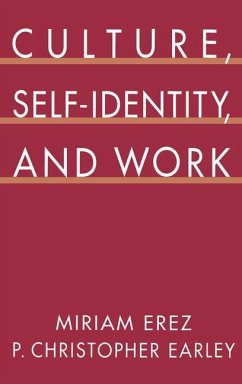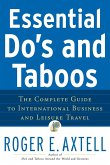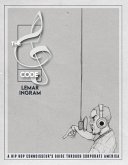The focus of this book is the development and application of a middle-range theory of culture, self-identity and work behaviour. According to the authors' self-representative theory, three components are relevant to an individual's work behaviour: cultural and situational characteristics, cognitive representation of the self, and managerial practices and techniques used in an organization. Culture is viewed as a shared knowledge structure that results in decreased variability in individual interpretation of stimuli. The self is viewed as a dynamic interpretive structure that shapes an individual's interpretation of social milieu. Managerial practices influence work behaviour, and in this book the focus is on how these practices relate to the components of culture and the self. A final chapter provides a number of specific recommendations for how organizations might consider structuring their environment and managerial practices in order to match culture-self interaction.
A great deal of research has been completed on the relationship between behavior and the organization of work, most of which has viewed the relation from an ethnocentric perspective. In Culture, Self-Identity, and Work Miriam Erez and P. Christopher Earley show how this research is insufficient to develop a global theory of work behavior because a true global theory necessitates the inclusion of a cultural perspective. Solidly grounding their work in the fields of psychology, management, and anthropology, Erez and Earley propose a new, multilevel, theoretical framework utilizing an individual's self-concept as a means of linking cultural values and social interaction to emergent work behavior. They have developed a Self-Representation Theory in which three components are relevant to an individual's work behavior: cultural and situational characteristics, cognitive representation of the self, and managerial practices and techniques used in organizations. The authors assert that managerial practices are evaluated by the self, in line with the cultural norms and values, and with respect to their contribution to employees' notion of self-worth and well-being. Positive evaluations of managerial practices enhance work behavior and the book's principal focus is on how these practices relate to the components of culture and the self. Culture, Self-identity, and Work includes specific recommendations for structuring work environments and managerial processes to match cultural practices and enhance productivity in the workplace, making it an essential reference for all professionals, as well as scholars and students of managerial behavior, organizational behavior, and national and organizationalculture.
A great deal of research has been completed on the relationship between behavior and the organization of work, most of which has viewed the relation from an ethnocentric perspective. In Culture, Self-Identity, and Work Miriam Erez and P. Christopher Earley show how this research is insufficient to develop a global theory of work behavior because a true global theory necessitates the inclusion of a cultural perspective. Solidly grounding their work in the fields of psychology, management, and anthropology, Erez and Earley propose a new, multilevel, theoretical framework utilizing an individual's self-concept as a means of linking cultural values and social interaction to emergent work behavior. They have developed a Self-Representation Theory in which three components are relevant to an individual's work behavior: cultural and situational characteristics, cognitive representation of the self, and managerial practices and techniques used in organizations. The authors assert that managerial practices are evaluated by the self, in line with the cultural norms and values, and with respect to their contribution to employees' notion of self-worth and well-being. Positive evaluations of managerial practices enhance work behavior and the book's principal focus is on how these practices relate to the components of culture and the self. Culture, Self-identity, and Work includes specific recommendations for structuring work environments and managerial processes to match cultural practices and enhance productivity in the workplace, making it an essential reference for all professionals, as well as scholars and students of managerial behavior, organizational behavior, and national and organizationalculture.








